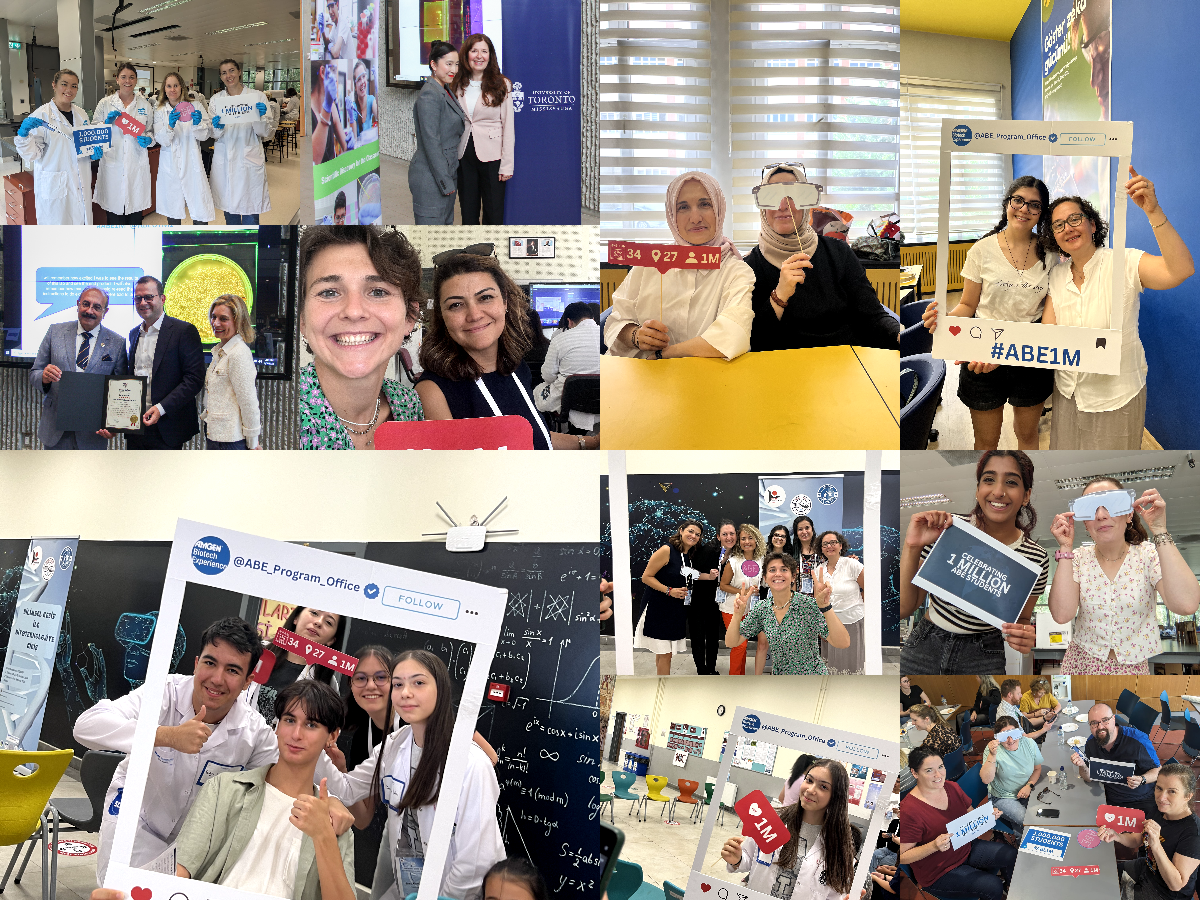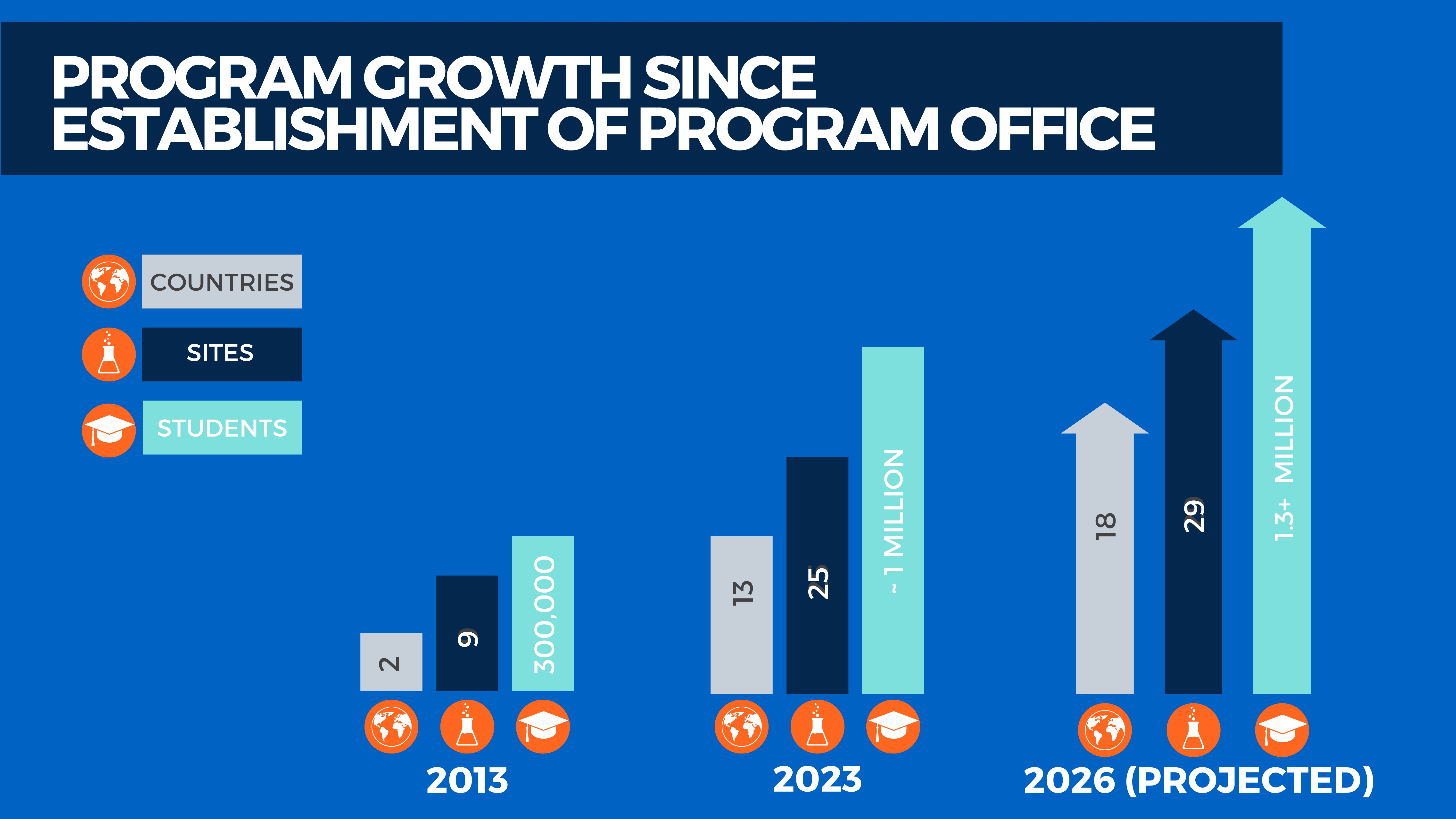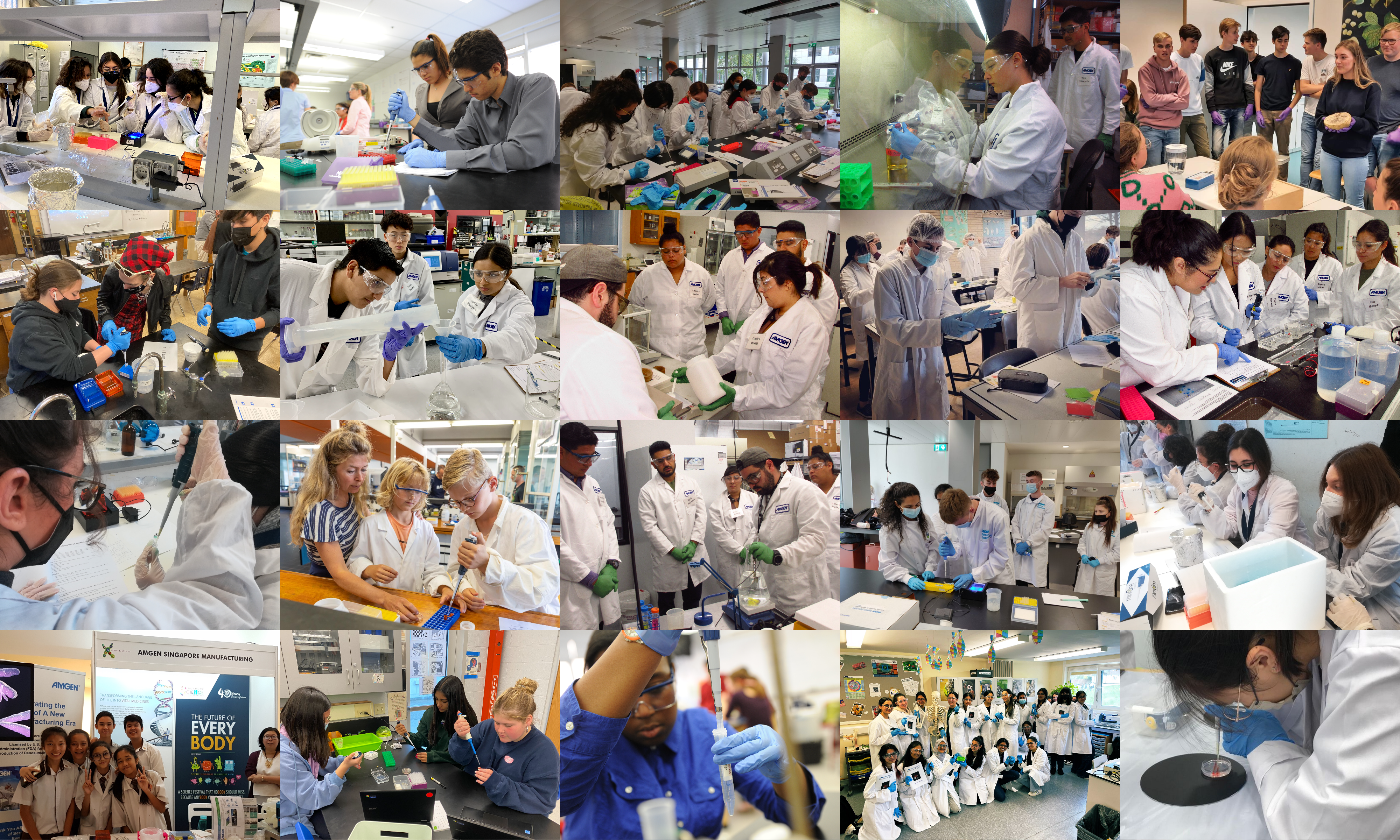Celebrating 1,000,000 Students Worldwide
On 9 September 2024, after more than 30 years, the ABE program celebrated its 1 millionth student reached.
What started at a single school in Thousand Oaks, California, has grown to reach 27 sites within 16 countries. Most recently the program has spread to Brazil, Mexico, and South Africa.

Click image to enlarge in new window
We are honored to share this program with so many inquisitive, hard-working students around the globe, especially those who have traditionally had less access to hands-on science.
How Did We Celebrate?
ABE program sites across the globe shared their excited about this milestone by posting celebratory messages on social media and taking photos using props furnished by the Program Office.
ABE Ireland ramped up the celebration by combining it with their own 10th anniversary. Festive events included special guests Taoiseach Simon Harris and Amgen CEO Bob Bradway. Read this article about the event.

What Does One Million Look Like?
It’s easy to say “1 million,” but what does a million really look like in the real world?
How Did We Get Here?
Though ABE now reaches 90,000 students and 1,500 teachers each year, the program had humble beginnings. In 1990, leaders at Amgen set out to help teach high school students in their community about biotechnology. Working with local teachers and using the latest tools and science, they created ABE. The program was rolled out to just 20 schools that year but had grown to 30 schools by the school year’s end.

Click image to enlarge in new window
Now, 34 years later, approximately 4,500 science educators have participated in ABE, bringing biotech education to over 1,000,000 students worldwide, and we’re still growing.
We Couldn’t Have Done It Without You!
We extend our heartfelt gratitude to all the ABE teachers, colleagues, friends, and partnering institutions for their unwavering dedication and tireless efforts over the past 34 years in fostering biotechnology education among countless students. Their commitment to bringing hands-on learning experiences and innovative curriculum into classrooms has been instrumental in shaping the next generation of scientists, researchers, and leaders in biotechnology. Their passion for education and determination to make science accessible to all have truly made a difference in the lives of so many.
.png)
